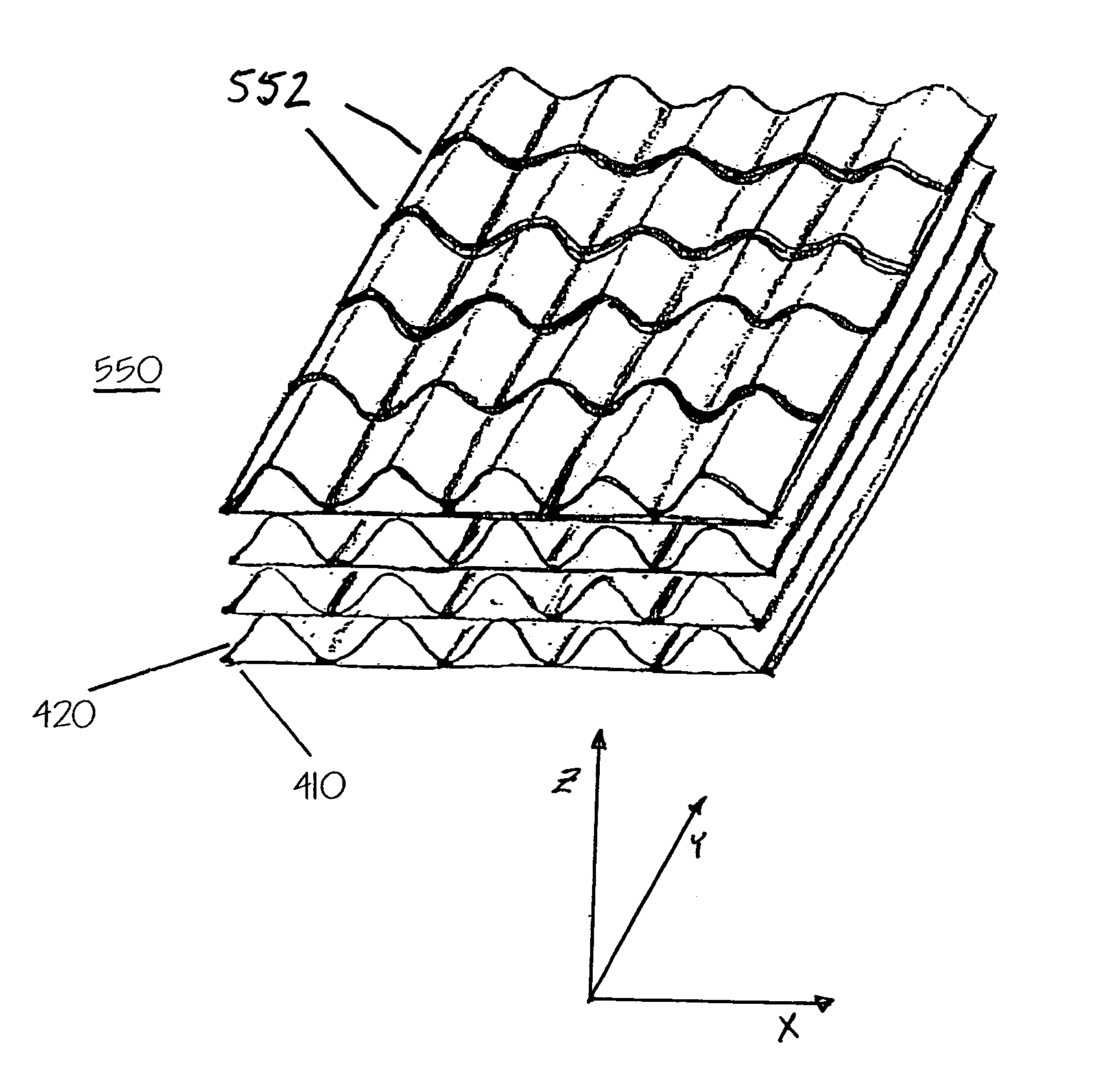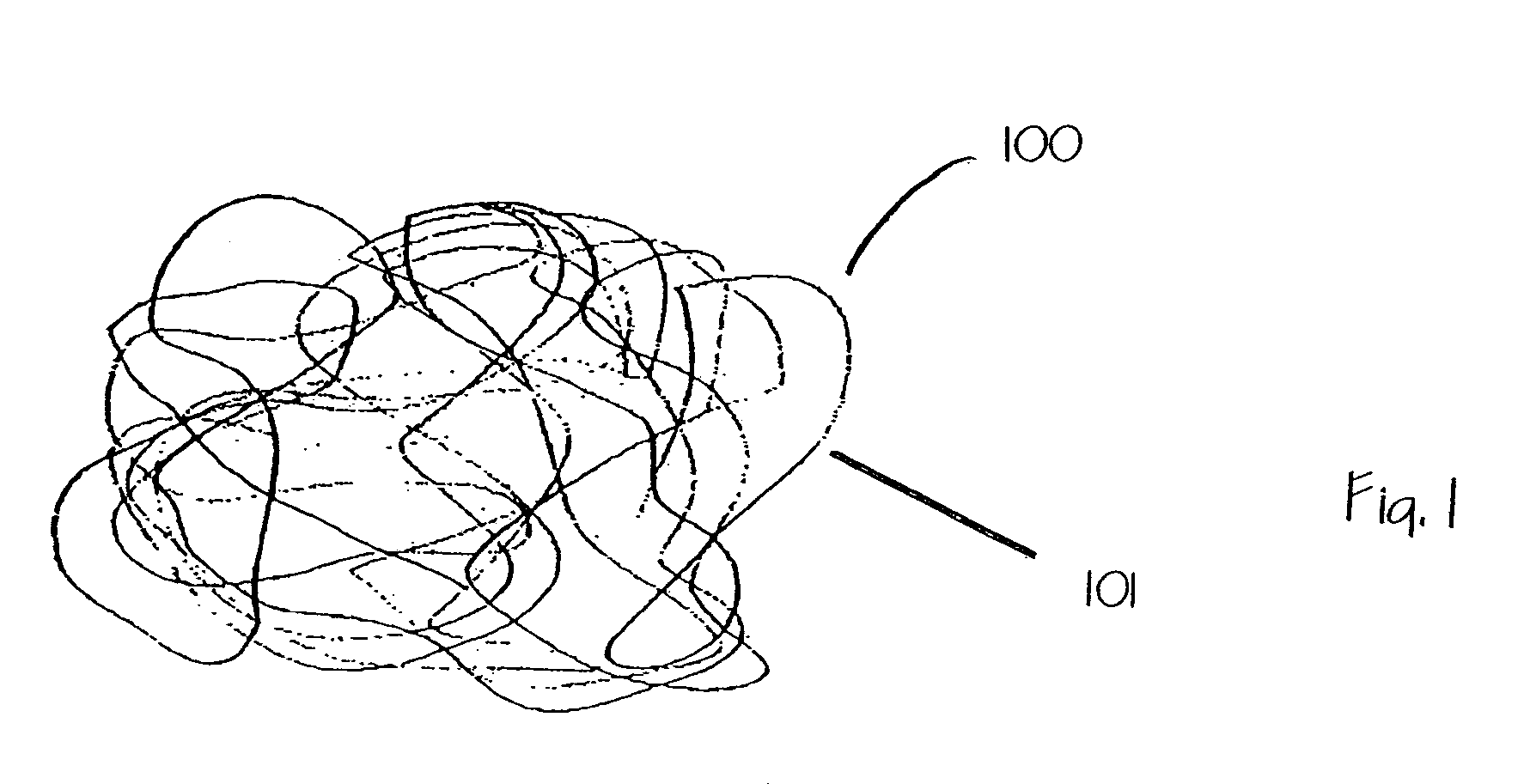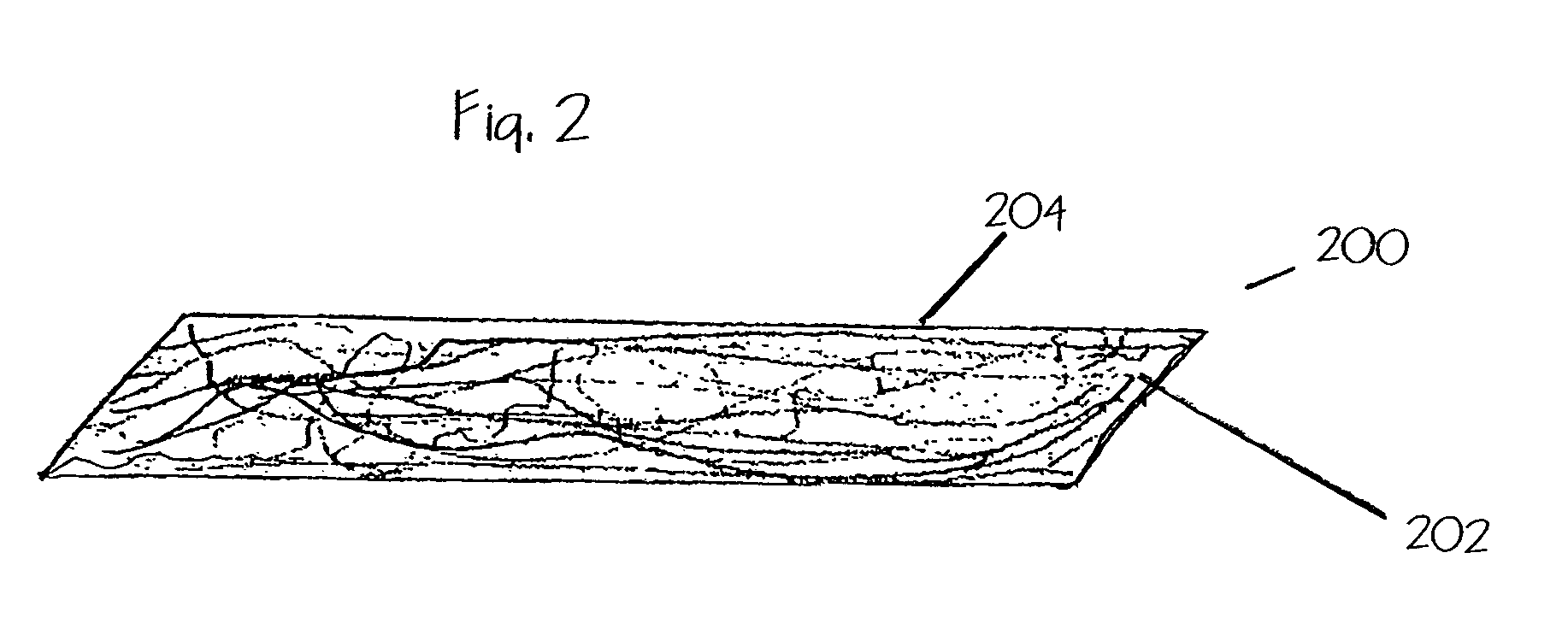Wound packing material for use with suction
a wound and suction technology, applied in the field of wound packing materials for use with suction, can solve the problems of affecting the quality of the suction, the skin surrounding the wound is macerated, and the absorbent gauze must be replaced periodically
- Summary
- Abstract
- Description
- Claims
- Application Information
AI Technical Summary
Benefits of technology
Problems solved by technology
Method used
Image
Examples
Embodiment Construction
[0041]Nonabsorbent wound packing has an advantage because it communicates exudates away from the wound and toward a source of suction more quickly and more completely. A component nonabsorbent fiber material, for the purposes of wound packing, is one that absorbs less than about 20% its weight in aqueous liquid. However, absorbency of a wound packing material is more appropriately characterized as volume of liquid absorbed by volume of packing (in its uncompressed state). Thus, a nonabsorbent wound packing preferably retains less than about one third its volume in aqueous liquid. More preferably, it retains less than about 11% its volume. Most preferably, it retains less than about 5% its volume. The absorbency of a wound packing is a function of a number of physical properties. Among them are density, wettability of the base material, the extent to which the base material swells with absorption, surface characteristics of the individual fibers (if any), and the geometric organizati...
PUM
 Login to View More
Login to View More Abstract
Description
Claims
Application Information
 Login to View More
Login to View More - R&D
- Intellectual Property
- Life Sciences
- Materials
- Tech Scout
- Unparalleled Data Quality
- Higher Quality Content
- 60% Fewer Hallucinations
Browse by: Latest US Patents, China's latest patents, Technical Efficacy Thesaurus, Application Domain, Technology Topic, Popular Technical Reports.
© 2025 PatSnap. All rights reserved.Legal|Privacy policy|Modern Slavery Act Transparency Statement|Sitemap|About US| Contact US: help@patsnap.com



